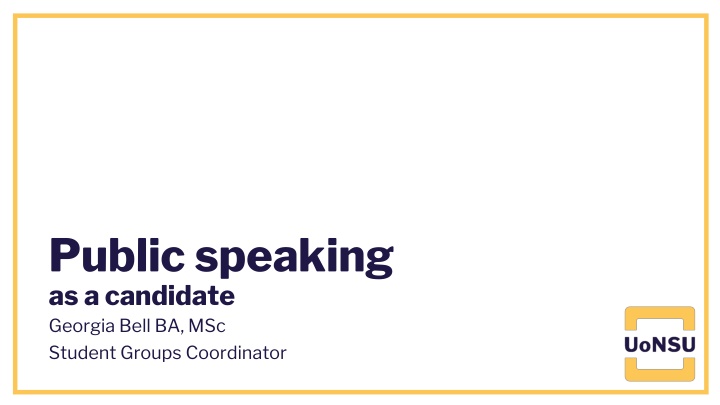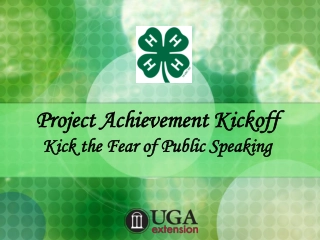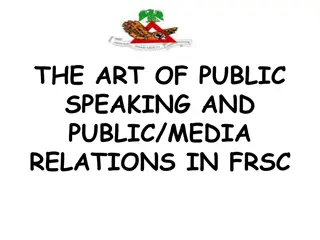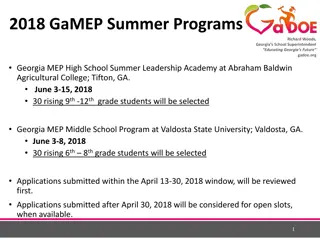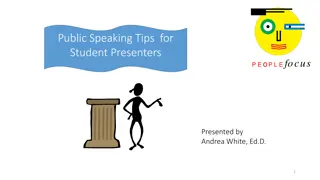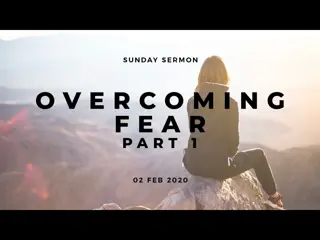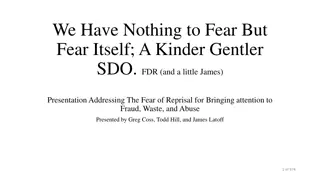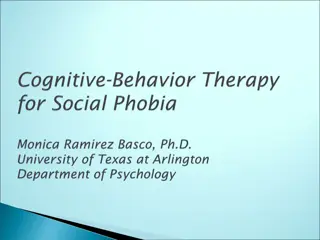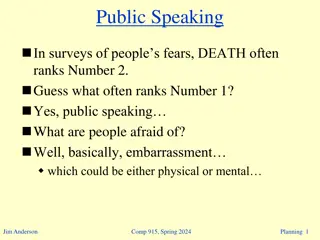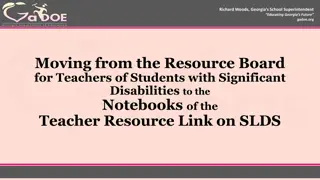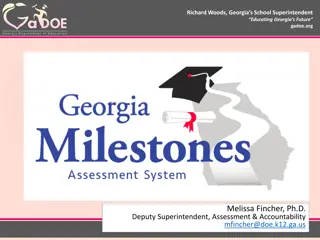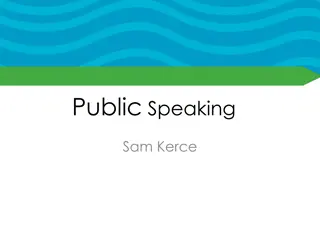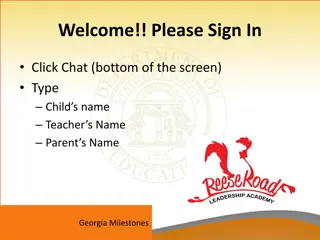Overcoming Fear of Public Speaking: Georgia Bell's Inspiring Journey
Discover Georgia Bell's journey from a young age struggling to speak to becoming a confident public speaker and student leader. Learn how she overcame glossophobia and anxiety to excel in public speaking. Her story proves that with determination and practice, anyone can conquer their fear and develop strong communication skills.
Download Presentation

Please find below an Image/Link to download the presentation.
The content on the website is provided AS IS for your information and personal use only. It may not be sold, licensed, or shared on other websites without obtaining consent from the author.If you encounter any issues during the download, it is possible that the publisher has removed the file from their server.
You are allowed to download the files provided on this website for personal or commercial use, subject to the condition that they are used lawfully. All files are the property of their respective owners.
The content on the website is provided AS IS for your information and personal use only. It may not be sold, licensed, or shared on other websites without obtaining consent from the author.
E N D
Presentation Transcript
Public speaking as a candidate Georgia Bell BA, MSc Student Groups Coordinator
Public speaking Glossophobia; the fear of public speaking is thought to effect up to 75% of the population. Often public speaking is the part of running for an officer that can feel the scariest but it does not have to be!
Scared of public speaking? You re not alone Public speaking is scary, but it is rewarding and a great skill to have. Everyone has reasons why public speaking may be harder, you may be an international student, you may have anxiety around social situations, you may have a speech impediment- Everyone has weaknesses but everyone also has strengths with public speaking.
My Journey with public speaking Knowing how people who love public speaking got to where they are can often be a great motivator. There is one fact about public speaking that you must always remember: Nobody is born a natural public speaker.
My Journey 1998- Georgia is born- Cannot talk. Age 3- Says two words- Hiya and Condensation (Terrifies my dad) Age 5- Starts school- still not talking, only speaking in sentences, making zero friends Age 11- Starts Secondary school, very delayed speaking skills, mild anxiety based stutter.
My Journey Age 13- Decides they want to be better at talking, enrols in a drama class. Age 15- Does drama GCSE and takes part in a public speaking sessions to help build my skills Age 16- Starts college, starts musical theatre, presenting study classes and have recovered from stutter. Age 18- Starts university, social anxiety has improved and I feel more confident with making friends
My Journey Age 19- Run for president of the Northern Art Student Union- Wins Age 19-21- President of my student union, give monthly presentations on the SU to potential students, Work open days, run events and meet countless people. Join the Student panel for the Office for Students etc. Graduates, does a masters, still presenting and being loud. Age 24- Currently stood here presenting on public speaking.
Challenging weaknesses Growing as a public speaker Discovering strengths
What do you think are strengths when public speaking?
How you feel Feeling Unsure Speaks too quickly Unsure of the topic Speaking clearly + Prep work Concentrates on breathing and slowing words Prepped on topics before hand, gives honest opinions Clear speaker, taking their time Honest and Knowledgeable Confidence What the Audience sees
What kinds of public speaking will you have to do as a candidate? Interviews Question times Campaigning to students Social media posts Manifestos
Interviews, Campaigning and Questions times
Tip one- Nerves are normal (and a nobody has to know you have them) You cannot escape feeling nervous, even the most experienced public speaker feels the nerves. Don t feel bad if you feel nervous, only you know you are nervous.
How to deal with the Jitters Deep breathes and water- the classic Have a support network- that last minute pep talk Words of affirmation- Pep talk yourself Music, books, meditation- take your mind away. Avoid caffeine, alcohol or stimulants- these will make anxiety worse.
Tip Two- Its not an essay don t try to hit a word count You don t need to add as many words as possible, be precise, be clear, don t ramble.
Tip Three -Practice does not make perfect- It makes good! (There is no perfect) There is no perfect speech, or Q&A so don t sit with that pressure on you. Practice is key to all public speaking so make sure you prep!
How can you prep for public speaking? Key Phrase repetition Speech Cards! Mock Q&A Writing a script In the Mirror
Prep is for you, not for anyone else Preparing is a personal thing, try lots of different methods and see what works best for you. Often in public speaking settings having script cards or a script in front of you is okay but can be distracting, if you can move away from full scripts to little cards or to no script it can help you engage with audiences.
Tip Four-Speak clear and slow! Enunciation is really important when speaking to a crowd of people. Learning how to clearly say each work is tricky and getting muddled is something you can t always avoid- but there are some ways to physically help yourself speak clearly.
Speaking with the body 1- Relaxed jaw and neck! 2- Straight back, relaxed shoulders 3- Lots of room for your Diaphragm to move! 4-Give your hands room to move, avoid holding things that are not Mics 5- Give yourself space to move!
Tip Five- Be yourself- dont focus on others Students want authenticity and your personality. Trying to seem like someone you are not when you speak to students its going to be mentally draining.
Tip 6- Have fun with it We ve all had a dry lecture where the lecturer has looked like they don t want to be there. You are there to inspire people, tell a story, crack a joke and smile a little.
Being a storyteller Start with a hook! Get people interested with what you are saying from the start! Each sentence/answer should have an end point! Getting personal is okay- that s why people will be voting. Never poke fun at anyone but yourself- but don t self deprecate.
Finally- Nobody knows when you make mistakes- Grow from them Miss a point? Stutter? Make a mistake? Nobody but you knows that, don t beat yourself up about small mistakes and take them in.
How to take feedback from public speaking Be kind to yourself Public speaking is a skill, not a natural talent. Getting feedback from someone who was there . Bullet point the feedback and keep it in front of you when you practice. Refresh feedback before the next time you speak.
